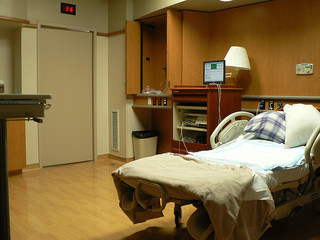
Fraud committed against the government through schemes against programs such as Medicare and Medicaid ultimately cost taxpayers and legitimate users of these social safety nets in the form of a drained U.S. Treasury and higher medical costs, respectively. But, as San Francisco qui tam lawsuit attorney Gregory J. Brod would point out, those programs are not the only targets of thieves. Indeed, on Tuesday it was revealed that an alleged scheme to bilk the Social Security Administration may rank as the costliest such fraudulent endeavor against that agency in history.
According to The New York Times, charges have been filed against 106 people, almost all of them retired New York City police officers and firefighters but also four masterminds who included an attorney and a pension consultant, for allegedly scheming to defraud the Social Security Administration’s disability program through feigned assertions of disability.
The accused participants were coached on ways to fake disability, including how to fail memory tests, feign panic attacks, inability to leave home or find a job and, if the first responder had worked during the Sept. 11, 2001, terrorist attacks, the importance of discussing fears about airplanes and entering skyscrapers when they showed up for psychiatric exams to asses eligibility.
Mentally Scarred ‘Homebound’ First Responders in Pictures Enjoying Outdoor Activities
However, according to prosecutors, the very same first responders who told government doctors that they were too mentally scarred to leave the confines of their homes posted pictures of themselves on Facebook in which they were participating in some very outdoors-like activities, such as flying helicopters, riding motorcycles, driving water scooters, playing basketball and fishing.
“The brazenness is shocking,” said Manhattan District Attorney Cyrus R. Vance Jr. at a news conference Tuesday. “It’s a particularly cynical part of the charged scheme that approximately half of the defendants falsely claimed that their psychiatric disabilities were caused by the 9/11 attacks.”
The indictment, which was unsealed by the Manhattan district attorney’s office Monday, detailed a scheme that resulted in each participant forwarding to organizers kickbacks of more than $28,000, which were taken from their first check from the Social Security Administration.
A surreal scene unfolded Tuesday as scores of former police officers were arrested and brought in handcuffs to State Supreme Court in Manhattan, where they were arraigned on charges of grand larceny. The former officers are accused of collecting between $30,000 and $50,000 per year in disability payments.
Scheme May Be 26 Years Old, Cost Government $400 Million
While colossal schemes to defraud Medicare have rightly garnered significant attention in the news, the huge plot in New York to defraud the Social Security disability program stands in the league monetarily of some of the worst cases of fraud against the federal government. Through a history of online photos, intercepted phone calls and testimony of undercover officers, the government reckons that the scheme may stretch back to 1988, involve as many as 1,000 people, and ultimately may have cost the U.S. Treasury an estimated $400 million.
Continue reading
 Healthcare Fraud Lawyer Blog
Healthcare Fraud Lawyer Blog



 According to a
According to a 

 Health Care Fraud Case Leads to Record Settlement
Health Care Fraud Case Leads to Record Settlement



